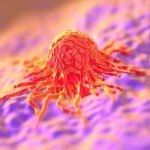![[seniors exercise]](https://cdn1.medicalnewstoday.com/content/images/articles/307/307757/seniors-exercise.jpg)
The Alzheimer’s Association estimate that Alzheimer’s disease currently affects 5.1 million Americans. Numbers are expected to rise to 13.8 million over the next 30 years, as the aging population expands.
There is currently no cure, and interventions focus on prevention through lifestyle management.
Dr. Cyrus A. Raji, PhD, of the University of California-Los Angeles (UCLA) Medical Center, and colleagues teamed up with researchers from the University of Pittsburgh in Pennsylvania to find out more about the effect of aerobic exercise on the brain.
They looked at a cohort of 876 patients enrolled in the 30-year Cardiovascular Health Study, across four research sites in the US. The average age of participants was 78 years.
The team examined details of participants’ memory over time and administered standard questionnaires about their physical activity habits, which varied widely and included gardening, dancing and riding an exercise cycle at the gym.
MRI scans reflect benefits of exercise on the brain
The investigators also carried out brain scans through magnetic resonance imaging (MRI), and they analyzed them using advanced computer algorithms. This enabled them to measure the volumes of those brain structures, such as the hippocampus, which are associated with memory and Alzheimer’s.
They then correlated the participants’ physical activities to their brain volumes and summarized the weekly caloric output from these activities.
Results showed that the more physical activity an individual did, the larger the brain volumes in key parts of the brain, and specifically the frontal, temporal and parietal lobes, including the hippocampus. Moreover, individuals whose brains benefitted from additional physical activity had a 50% lower risk of Alzheimer’s dementia.
Around 25% of the participants had mild cognitive impairment associated with Alzheimer’s. Increasing their physical activity was also found to boost their brain volumes.
George Perry, PhD, who is the editor-in-chief of the Journal of Alzheimer’s Disease, hopes that the current study will be the first step toward objective biological measurement in the field of Alzheimer’s.
Dr. Raji adds:
“We have no magic bullet cure for Alzheimer’s disease. Our focus needs to be on prevention.”
Medical News Today recently reported on research indicating that keeping mentally fit may not help to keep Alzheimer’s at bay.
[SOURCE :-medicalnewstoday]



